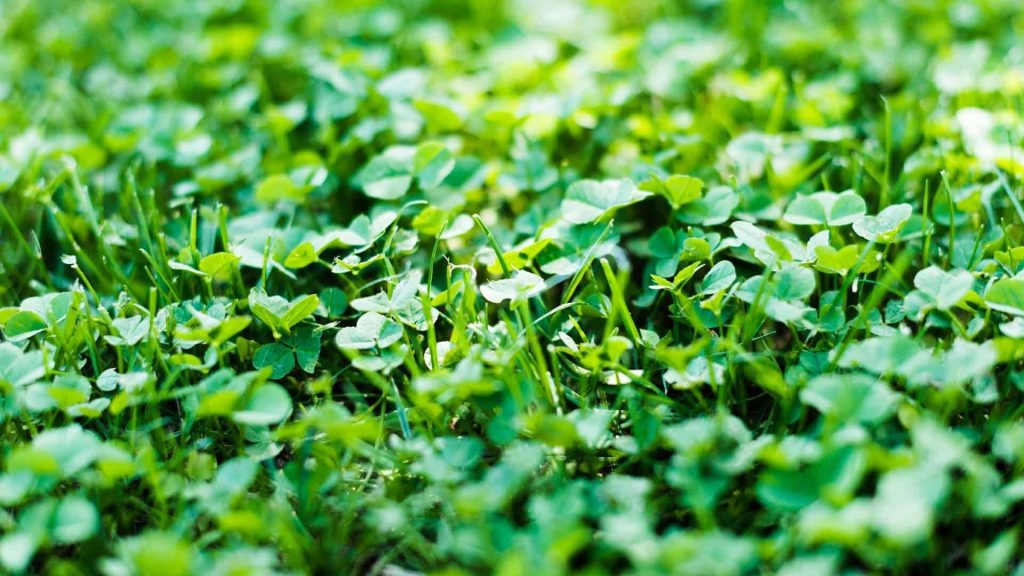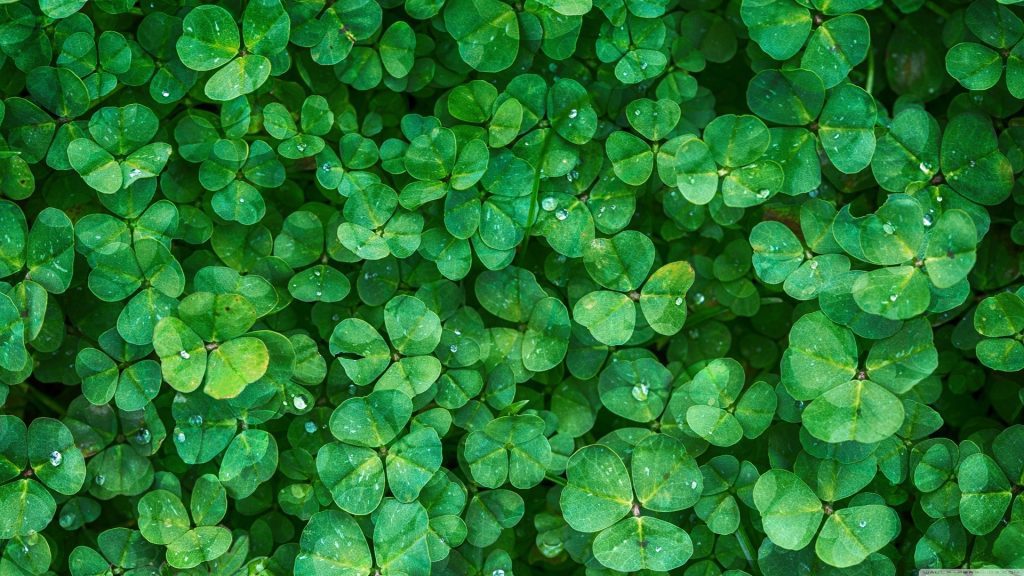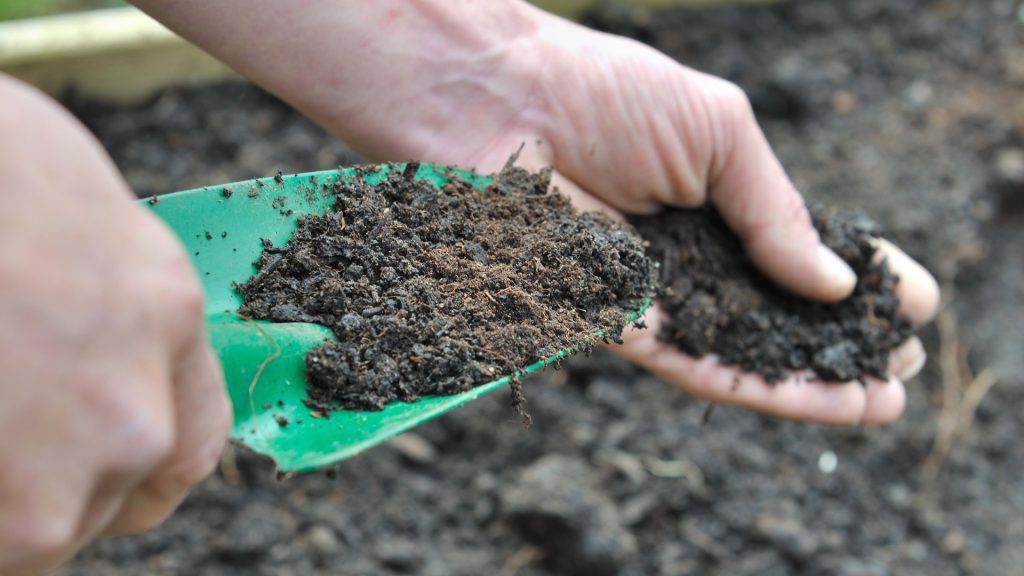
Manure for Lawns: Yay or Nay?
In the quest for natural gardening methods, many people look to options like manure to feed their lawns. Packed full of nutrients and easy enough to source, manure can be a great alternative to store-bought fertilizers.
Should you use manure on your lawn? Yes, it’s perfectly safe to use manure on your lawn as a fertilizer, as long as it’s been composted or treated.
The nutrient-rich organic material is ideal for giving your lawn what it needs, but it should be applied safely and sourced from reputable places.
Using manure for lawns isn’t as simple as heaping on some fresh animal droppings to your grass, so there’s a lot to learn about it.
This guide will cover it all including the types of manure, where to get them, and the downsides you need to be aware of before putting it to work on your lawn.
What is Manure?
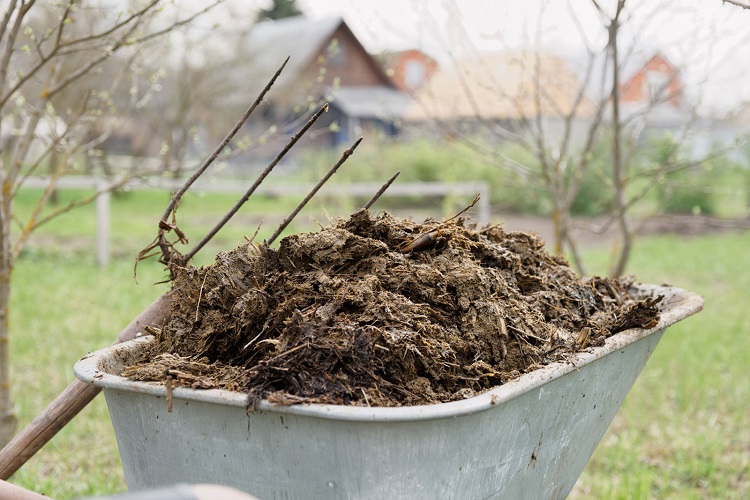
Manure is a term used to describe animal feces that are used for gardening purposes.
The organic matter is collected from various animals including cows and poultry, then composted, aged, or treated so that it’s suitable for application on plants and grass.
When discussing manure used for gardening, fresh manure is never recommended.
Not only is it too rich in nutrients and capable of damaging your garden and burning the plants, but there are also health risks associated with using this type of waste.
Therefore, you should let it age for six months or choose a product that’s been composted or treated first.
The Different Types of Manure
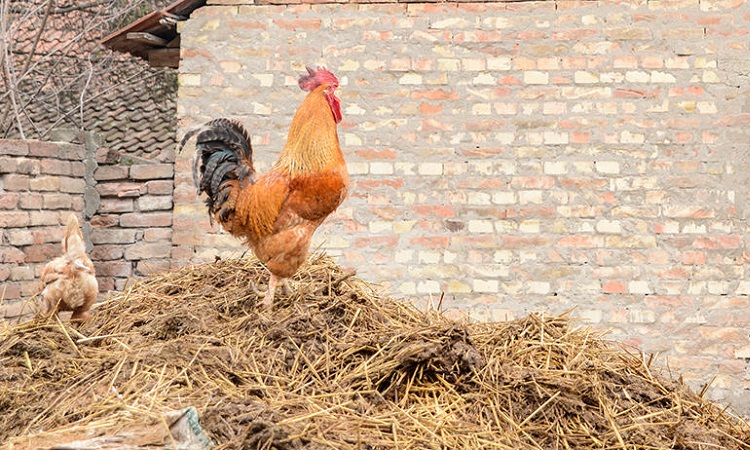
Not all manure was created equally and it’s not all ideal for throwing on your lawn. To get a better idea of what manure you should be using on your grass, here’s what a few of the common labels mean:
- Poultry: This is the most popular choice for lawns and gardens because it’s got the highest nitrogen content. Another bonus of poultry manure is that it contains fewer contaminants than other animals sources so it’s safer to use.
- Goat and sheep: The second most popular manure type comes from goats and sheep, with the biggest selling point being their dry texture. This makes it easy to spread the manure on your grass and garden with minimal odors or mess.
- Composted manure: Adding manure to an existing compost heap guarantees you get all of the benefits without any of the downsides. The potential pathogens break down and you’re left with only the best nutrients.
- Aged manure: This is manure that has been left to age for at least six months, and at this time it’s still high in nutrients but safer to apply. Sometimes, manure may be sterilized or treated so that it has the same composition as aged manure.
How to Source Manure for the Lawn

We don’t all have access to a farm where animals create fresh manure for us to use on our lawns, so knowing where to source it is key.
Thankfully, manure is plentiful in other places so it’s simply a matter of deciding what type you want and how much your lawn needs for adequate coverage.
There are commercial manure products that have been sterilized, treated, and bagged, but these are usually more expensive.
The best approach is finding manure is buying it from a nearby farm or a landscaping or garden supply business that has access to large quantities.
Potential Downsides of Using Manure on the Grass
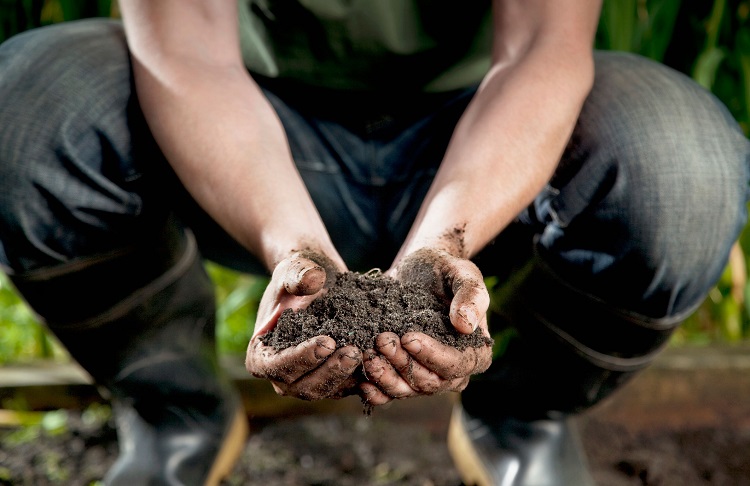
As with any type of plant food, you need to be reminded of the downsides of using a specific product. When it comes to manure, these are the main concerns of applying this type of fertilizer to the lawn.
- Excess nutrients: As nutrient-rich as manure is, this can also be a bad thing and go against the health of your grass. Everyone knows that applying too much fertilizer is a no-no so the same logic can also be applied to manure. A buildup of certain nutrients might occur and excess components can escape in runoff, which might cause issues for the surrounding ecosystem as well.
- Unknown ingredients: As the waste of an animal, you need to think about what might be included in it that you could be applying to your lawn. Some of the ingredients possibly found in manure include heavy metals, chemicals, hormones, antibiotics, and other unwanted ingredients that might damage plants.
- Soil acidity: The pH balance of your lawn can be thrown out when you use manure as a fertilizer, and it can also deplete calcium levels, so you have to be careful how much and what type you’re applying. Regular soil testing should be performed both before and after using a new fertilizer to assess whether there are any negative consequences.
Safe Application of Manure for Lawns

Any time you plan on fertilizing your lawn or using a gardening product, you want to be protected. Manure is no different, and even though it’s sourced naturally and made of organic matter, it can still be dangerous.
You should only ever use mature manure that’s been aged for at least six months or a manure product that’s been composted or sterilized.
The pathogens present in manure are harmful to you and your garden, even while wearing the right protective gear. Always water the manure in after you mix it through, ensuring it reaches the soil and avoids contaminating the environment through run-off.
When applying manure as a top dressing solution, it’s important to note that you’ll lose most of its nitrogen content doing it this way.
For the best results, we recommend working the manure through the soil so that it gets all of the nitrogen this ingredient has to offer.
Otherwise, you can use other nitrogen-rich ingredients like cottonseed meal and fish emulsion in conjunction with the manure for even better results.
Manure vs Fertilizer vs Compost
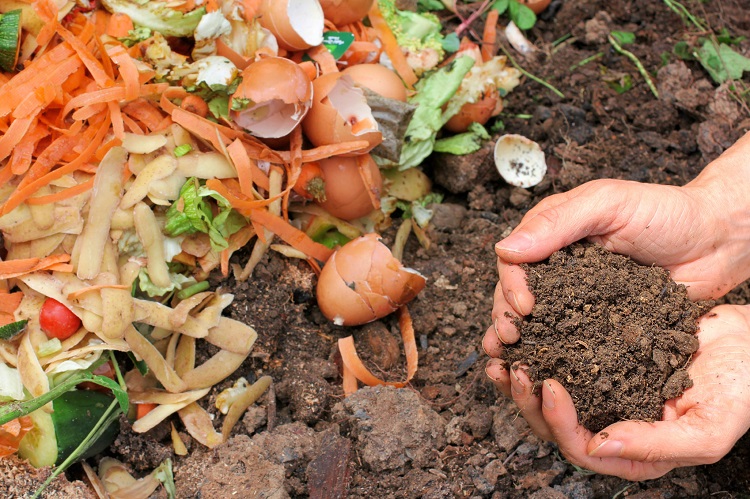
If you’re new to lawn care, you probably find your head swimming with all of the options out there for feeding it.
As the three main choices that gardeners have when it comes to improving lawn growth, here are the key differences between manure, fertilizer, and compost so you know what’s what.
- Manure: Manure consists solely of the feces of animals and is not mixed with anything else. Raw manure and mature manure are two different things, with the latter being the safer choice for gardening. Treated or sterilized manure products are also suitable for applying to your lawn.
- Fertilizer: A fertilizer is a product rich in nutrients, usually with a specific formula designed to suit a plant’s requirements. Lawn fertilizers can be made with natural and synthetic ingredients, and their key components are nitrogen (N), phosphorous (P), and potassium (K), which is listed as a specific ratio on the label.
- Compost: Compost comprises natural ingredients that have been broken down over time, including fruit and vegetable scraps or grass clippings. These ingredients are usually sourced from the garden and kitchen of the person who created the compost. Compost takes between eight weeks and one year to mature, then it will be ready for use as a top dressing on the lawn.
Farm Fresh Nutrients for Your Lawn
The upsides of using composted manure on your lawn far outweigh the minor downsides, especially when you do it right.
There’s nothing more natural or nutrient-rich as manure, and there are plenty of different types to choose from if your goal is to improve the health of your lawn.
Related Questions
The use of manure as a fertilizer is a popular one, but it’s not the only natural ingredient that you can use for growing grass. To help you learn more about potential grass feed options which are naturally sourced, read on for a few FAQs.
Can I Use Epsom Salt on My Lawn?
Epsom salt is a beneficial natural ingredient that can be added to your lawn to help with nutrient absorption and seed germination.
Users reported a much healthier lawn following regular application of Epsom salt when applying it with water in a sprayer as a natural form of fertilizer.
What is a Compost Tea Fertilizer?
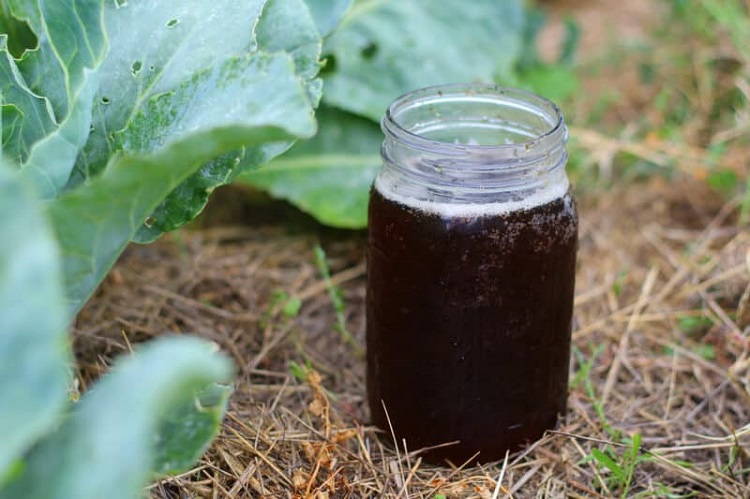
Compost tea is made by steeping fresh compost in water for a few days, creating a nutrient-rich liquid that can be sprayed onto plants and grass.
This liquid version of compost is loaded with nutrients and microorganisms that work wonders for your lawn and it’s easier to apply than top dressing with solid compost.
Are Eggshells Good for Your Lawn?
Eggshells come with lots of nutrients that are good for the lawn, including nitrogen, phosphorus, and magnesium.
However, if you want to use them for grass growth, it’s best to add them to a compost heap and apply them that way rather than sitting the shells on the grass directly.
Resources:
